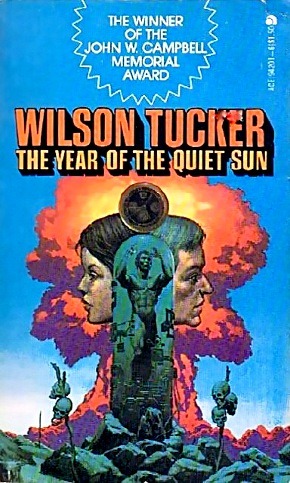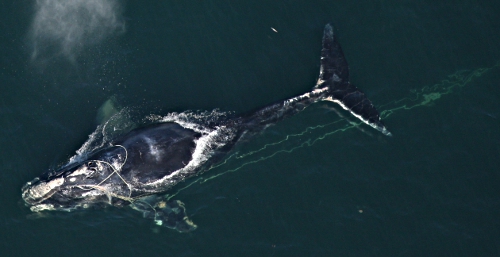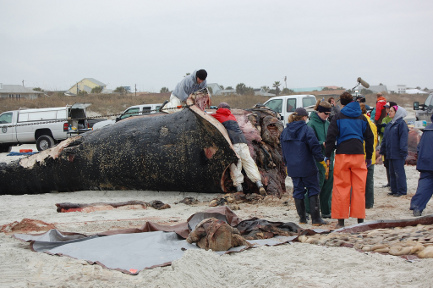Tell Me What to Tell Congress
I'm in Washington D.C. as part of the Long Tail Fly-In, a group of around 60 small web publishers assembled by the Interactive Advertising Bureau (IAB). As a publisher who uses context-based advertising on the Drudge Retort and other sites, I was invited to meet with members of Congress to talk about why this form of advertising is important to online media.
I attended this event last year and met aides for Reps. Diane DeGette (D-Colo.), Michael Castle (R-Del.), Bill Young (D-Fl.), Charlie Melancon (D-La.) and Mike Rogers (R-Mich.). I also elbowed Rep. Ciro Rodriguez (D-Texas) hard in the schnozz in one of the tiny elevators in the Rayburn building, but I don't think he knew I was with the IAB -- so no harm, no foul.
This year the odds are pretty good I'll be talking to a member of Congress, since 18 members of the House or Senate have scheduled time with us.
That's where you come in. I'd like to hear from people who are running full- or part-time businesses that are fueled by Google AdSense and other third-party ad services that provide contextual ads. I'd like to know how you started the business and whether it will be viable if new privacy laws make it impossible for ads to be targeted to users using cookies and other web technology.
I wouldn't be able to run the Retort or my other sites without AdSense, one of two ad brokers I'm currently using on the site. I tried a half-dozen other ad providers before Google got into that business, and none of them generated enough revenue to be able to afford server hosting, much less any of my time.
If you're running an online site with these kinds of ads, I'd like to hear from you so I can crib your stories tomorrow on Capitol Hill.
YouTube Founders Save Delicious from Doom
Good news: The social bookmarking site Delicious has been saved from Yahoo's wrecking ball. YouTube founders Chad Hurley and Steve Chen have acquired the site for an undisclosed sum.
![]() Delicious was founded in 2003 by Joshua Schachter, an entrepreneur I got to know as a contributor to his early group blog Memepool. Delicious is a free service to organize web bookmarks and share them with others. This was briefly a phenomenon before Facebook and Twitter devoured all other forms of link sharing.
Delicious was founded in 2003 by Joshua Schachter, an entrepreneur I got to know as a contributor to his early group blog Memepool. Delicious is a free service to organize web bookmarks and share them with others. This was briefly a phenomenon before Facebook and Twitter devoured all other forms of link sharing.
New owners Hurley and Chen have formed the AVOS startup to run Delicious and have designs on some kind of search business:
Going back to their roots, Hurley and Chen located Delicious in downtown San Mateo, California, blocks away from where they started YouTube. They're aggressively hiring to build a world-class team to take on the challenge of building the best information discovery service on the web.
When Yahoo announced it was either shutting down or selling the site in December, it appeared likely that it was a goner. As a user for years, I figured at some point I'd need to migrate my data someplace else. Looks like that's unnecessary.
Yahoo bought Delicious in 2005, reportedly for $15 to $20 million. Geek System reports today that Yahoo's asking price for Delicious was around $1 to $2 million. The numbers work pretty well with some advice I offered on Twitter back in December: If you sell your site to Yahoo, set aside 10% of the money so you can buy it back after Yahoo drives it into the toilet.
Two Science Fiction Novels I Didn't Finish
I hit a bad streak reading novels this month. My house is overflowing with books I've been meaning to read, so I will give up on a novel when I've abandoned all hope of being entertained. I figure if I'm not enjoying a book after 50 to 75 pages, it's time to bail. I reached that point with Wilson Tucker's The Year of the Quiet Sun (1970) and Philip K. Dick's The Divine Invasion (1981).
 Quiet Sun is a Nebula Award-nominated time-travel novel by the late Wilson "Bob" Tucker. He was an active science fiction fan who belonged to the Fantasy Amateur Press Association (FAPA) and coined the term "space opera."
Quiet Sun is a Nebula Award-nominated time-travel novel by the late Wilson "Bob" Tucker. He was an active science fiction fan who belonged to the Fantasy Amateur Press Association (FAPA) and coined the term "space opera."
As a current member of FAPA and a time-travel geek I wanted to like the book, but after 70 pages Tucker was still putting the main characters together. Nothing had happened yet. No time travel. No plot twists. Just talk talk talk. The male protagonists pass the time pontificating about their fields of study and making moves on the young female bureaucrat who recruited them. She's in her 20s and the prospective time travelers are an older scholar and two military officers. Their constant attempts to flirt with her may have been standard operating procedure in the free-love-and-sideburn '70s, but Tucker never shows her reciprocate anyone's interest -- so it feels like actionable sexual harassment.
Wikipedia's synopsis of the novel reveals that the time-traveling Don Drapers go to the future and find a U.S. embroiled in race war: "Moresby goes first and travels to July 4, 1999 ... only to emerge in the middle of a racial civil war in which Chicago had recently been attacked with a nuclear bomb launched from China on behalf of black guerrillas." I might have stuck with the novel if I knew it was fueled by early '70s fear of a black planet.
I hadn't read anything by Philip K. Dick before trying Divine Invasion. The book's about a virgin conception on a remote industrial planet. The savior fetus Emmanuel is the son of Yahweh, and he needs to return to Earth to take the planet back from the devil Belial, who has been running things since the fall of Masada in the first century AD. Belial controls Earth through a one-world government that's a "unification of the Communist Party and the Catholic Church."
This is odd enough to catch my interest, but Dick's plot feels like an excuse to engage in ponderous theological ruminations on God, the Bible and the Torah. Here's an example:
Emmanuel watched, and presently the cat came to him and asked to speak to him. He lifted it up and held it in his arms and the cat placed its paw against his face. With its paw it told him that mice were annoying and a bother and yet the cat did not wish to see an end of mice because, as annoying as they were, still there was something about them that was fascinating, more fascinating than annoying; and so the cat sought out mice, although the cat did not respect the mice. The cat wanted there to be mice and yet the cat despised mice.
All this the cat communicated by means of its paw against the boy's cheek.
I usually struggle with this kind of pass-the-bong storytelling. Give me literal fiction with relatable characters. I have an allergy to allegory.
Calling the Itamar Attacker a 'Terrorist'
I'm getting some pushback on the Drudge Retort to how I presented the Itamar attack story:
Intruder Kills Israeli Settler Family
In the West Bank settlement of Itamar, five members of an Israeli family were killed Friday night by an intruder who broke into their home and stabbed them to death. The suspect stabbed the mother, father and children aged 11, three and three months old. Two children, aged 2 and 4, were not harmed in the attack. The attacker has not been caught.
The media is calling the attacker a terrorist. I read six stories on the incident last night and none of them contained a single bit of evidence to back up this claim. They all simply assume that it must be terrorism and quote people making the same assumption.
I know this heinous crime is likely to be terrorism, but the media should not jump to conclusions and report something that is likely as if it is certain. This is particularly true when a story has immediate and explosive political ramifications.
But since I wrestled with this decision for a while, I'd like to hear other opinions.
Longevity, Health and Charlie Sheen
Last night's episode of Two and a Half Men ended with this end-of-show text from series creator Chuck Lorre, who puts vanity cards at the end of his shows that only can be read by pausing the TV:
I exercise regularly. I eat moderate amounts of healthy food. I make sure to get plenty of rest. I see my doctor once a year and my dentist twice a year. I floss every night. I've had chest x-rays, cardio stress tests EKGs and colonoscopies. I see a psychologist and have a variety of hobbies to reduce stress. I don't drink. I don't smoke. I don't do drugs. I don't have crazy, reckless sex with strangers.
If Charlie Sheen outlives me, I'm gonna be really pissed.
Huffington Post is a Content Cesspool
A lot of the commentary about AOL's purchase of Huffington Post is coming from people who don't appear to have ever visited the site. Huffington Post is not a liberal news and opinion site, though that was founder Arianna Huffington's stated goal when it began in 2005. It's a massive search engine optimized pile of junk content with a little original news and commentary sprinkled in -- and most of that was written for free with no editorial oversight or quality control.
On Saturday, an unnamed Huffington Post employee wrote an article that perfectly represents the dreck that it publishes -- a story titled "When does the Super Bowl start?" Check out some of the fine journalism that AOL valued at $310 million:
Are you wondering, "what time does the Superbowl start?"
It's a common search query, as is "what time is the super bowl 2011," "superbowl time" and "superbowl kickoff time 2011," according to Google Trends the evening before the Super Bowl.
It's easily answered too. Super Bowl 2011 will take place on Sunday, Feb. 6, 2011, at 6:30 p.m. Eastern Time and 3:30 p.m. Pacific Time.
The NFC Champion Green Bay Packers will take on the AFC Champion Pittsburgh Steelers at Cowboys Stadium in Dallas, Texas. Early odds had the Packers as the favorites and both sides have several standout players.
Usher, Slash and the Black-Eyed Peas are scheduled to provide the Half Time Show entertainment.
You can watch the game live on television (FOX) or follow along live online via Twitter or the numerous live blogs on the Web, including one right here on The Huffington Post.
In the meantime, be sure to preview some of the Super Bowl commercials here and share your prediction for the game below.
When Huffington Post isn't running Google Trends-inspired searchbait like this, it's taking stories from other sites, copying big chunks of them and putting a search-friendly headline and lots of tags on it. This often leads to the site getting more traffic and higher prominence in Google than the originator of the news.
People who think the editorial vision of Arianna Huffington will be good for AOL media properties -- such as the recently acquired TechCrunch -- are kidding themselves. If Huffington follows the same blueprint for success that got her acquired by AOL, TechCrunch, Engadget and the rest of AOL's original web content will be search engine optimized, topic linked and ad saturated to oblivion.
Right Whale Dies Off St. Augustine
On Dec. 30, 2010, a team of federal and state biologists rescued a severely entangled North Atlantic right whale off the coast of Daytona, Florida. The whale, born during the 2008-09 calving season, was one of 300-400 left in existence from a population that once numbered in the tens of thousands. (Click the picture to see a high-resolution JPEG photo.)
The female whale had become caught in more than 150 feet of fishing rope and wire mesh, some stuck in its mouth. This was causing it feeding difficulties that left the creature undersized.
On Jan. 15, 2011, the team sedated the same whale, slowing it down enough to remove 50 more feet of rope.
Sadly, the whale died this week and its body was towed to shore on Butler Beach south of St. Augustine late Wednesday night. I drove out yesterday to see the whale and witnessed a team of around 20 people conducting an autopsy and dispensing of the whale's remains.
I've shared the photos I took on Flickr. They're not for the squeamish. The whale was so big they had to use a backhoe to pull it apart. One guy stood atop it with a machete and others climbed inside the animal, a gory process that was surprisingly bloodless. By the time I stopped by a few hours later with my son Max, almost all that was left was a 20-foot long truckbed filled with whale bones. It looked like the remnants of a giant rib dinner. The smell downwind of it was horrible.
I've been following the news of this whale for weeks, so it was depressing to learn that it didn't make it. I'm currently looking for opportunities to help the whales, who come south every winter from December to March to give birth to calves. The blog North Atlantic Right Whale Watch has more pictures and information on how to volunteer as a whale-spotter here in North Florida.



